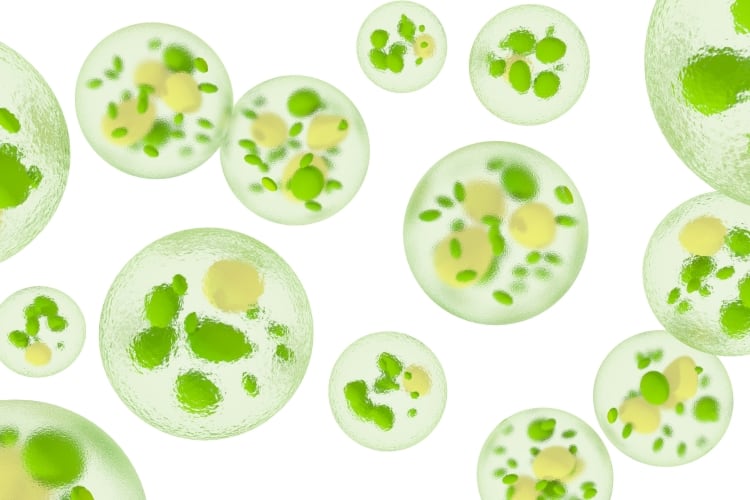Optomega Algae, part of Anpario’s Optomega product range, is a dry, free-flowing powder composed of algae oil, formulated on a carrier system and packaged in foil-lined bags for optimum shelf-life and product freshness.
“A specific species of microalgae is used to produce Optomega Algae. Through fermentation processes, the microalgae provide a rich source of long-chain omega-3 fatty acids, specifically docosahexaenoic acid (DHA). DHA is well documented to support fertility in the dairy herd and can also assist in elevating omega-3 levels in milk,” said David Wilde, global innovation manager and ruminant expert at Anpario.
“Our range provides a choice of essential omega-3 fatty acid supplements, all from sustainable sources.”
The microalgae production process is sustainable and utilizes renewable sugarcane production, with waste being used as an energy source to power the production facility.
The role of long-chain omega-3 fatty acids has been extensively studied in the last 20 years and the essential fatty acid DHA has been shown to suppress the production of PGF2α, a hormone that terminates the pregnancy in the early stages.
“Ensuring optimum fertility is vital to the success of any dairy enterprise. Pregnancy rates of under 15% are all too common, whereas a target of 20 -25% should be achievable,” Wilde said.
“Cows that do not fall pregnant in a timely manner are one of the biggest reasons for involuntary culling in dairy herds globally and this is associated with significant costs, due to replacement of animals and milk losses.
“In addition to supporting establishment and maintenance of pregnancy, including Optomega in a dairy cow’s diet also provides a highly digestible energy source, which can help to maintain an optimum energy balance, supporting lactation performance.”

